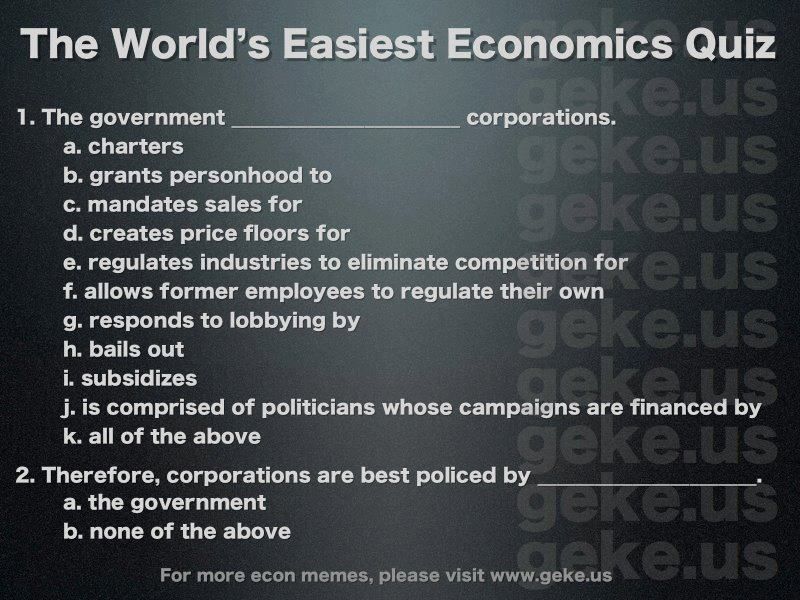I, like almost everyone at this board, agree that government-imposed regulation harms the market. Deregulating the banks would prevent recessions, deregulating the medical industry would make health care less expensive, etc. Consumers should rely on personal responsibility rather than government intervention.
The problem I see is what happens when a national/international corporation out-competes local businesses to the point of them having a monopoly over the market, or conspire with other corporations towards price-fixing, etc. When this happens, you can no longer make the argument "Well they should shop somewhere else", or "Well, they should work somewhere else" because that "somewhere else" has been out-competed by a larger corporation.
I can't see a way around this other than the government regulating large corporations. Any help?
Site Information
About Us
- RonPaulForums.com is an independent grassroots outfit not officially connected to Ron Paul but dedicated to his mission. For more information see our Mission Statement.






 Reply With Quote
Reply With Quote






Connect With Us